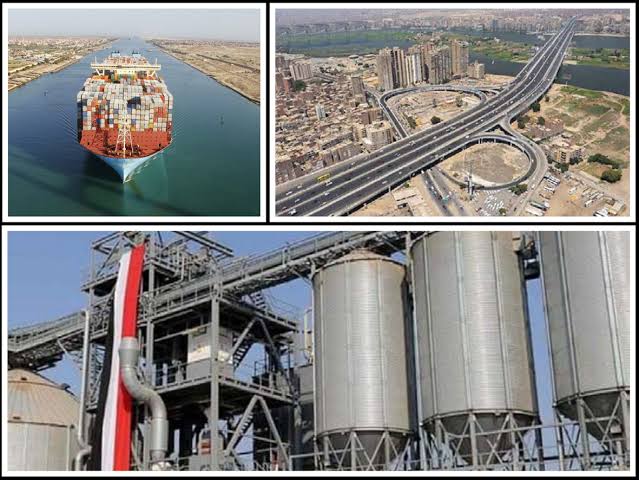The government has made tremendous efforts to cope with the negative repercussions of regional conflicts.
It carried out monetary and exchange rate adjustments to address the foreign currency crisis that has been prevailing since 2022.
The Central Bank of Egypt (CBE) allowed the Egyptian pound to depreciate vis-à-vis the US dollar to address distortions in the foreign exchange market.
In tandem with this, the CBE also increased key policy rates to control inflation and support the local currency.
The government also took a series of measures to mitigate the effects of these problems, including increased cash transfers and a higher minimum wage.
These measures are supported by significant investments from the United Arab Emirates and the completion of the International Monetary Fund reviews.
The recent adjustments seek to redress long-standing fiscal and external imbalances, worsened by multiple global shocks.
Positive outlook
Despite the aforementioned challenges, Egypt’s medium-term macroeconomic outlook is expected to improve as the country pushes ahead with stabilisation and structural reforms.
Economic activity is forecast to drop to 2.8% in the 2024/2025 fiscal year (from 3.8% a year earlier), but it is projected to start recovering in the fiscal year 2025/2026, supported by investments and a rebound in private consumption as inflation decreases.
Government debts are expected to rise in the short term, but also expected to fall down over the medium term with fiscal consolidation.
Pursuing the ambitious economic reforms under the State Ownership Policy as well as ameliorating the business environment is essential for fiscal space, human capital development and social protection.
Structural measures to improve the business environment that can make Egypt a more attractive place for investors are crucial for reinvigorating the local economy.
A key challenge for the government to achieve comprehensive development is building modern and transparent institutions to encourage accountability and good governance so that the gains of growth can benefit all people in society.
Improving education
Improving the educational system is of paramount importance for Egypt’s long-term development.
Efficient skills cannot be created without upgrading the education system to prepare graduates for what is needed in the modern labour market.
The rebalancing of spending towards health and education mandated by the constitution, if implemented efficiently, could support higher, more inclusive growth in the longer term, while preserving fiscal sustainability.
With the right policies, the government can meet the hopes and the aspirations of the Egyptian people.
Steadfast implementation of structural reforms can help restore economic stability, and spur jobs and growth.
Partnerships
Meanwhile, International Co-operation Minister Rania el-Mashat called for enhancing global partnerships and establishing new mechanisms to address challenges.
She also stressed the need to achieve integration among international finance institutions, which in turn contributes to reinforcing the effectiveness of economic reform programmes that are implemented with different countries.
Addressing a session, titled ‘Macro-fiscal policies to manage shocks and build resilience’, on the sidelines of the annual meetings of Arab financial institutions in the New Administrative Capital, the minister revealed that Egypt had received concessional finance worth $38.8 billion from international development partners between 2020 and 2023.
She pointed out that some $10.3 billion was directed to several projects that were implemented to stimulate private investments and support efforts aimed at the achievement of sustainable development.
“Successive global shocks affect the economic reform policies adopted by countries, underlining the importance of stimulating private sector investments in green transition,” the minister said.
Financing tools needed
Addressing the same event, Minister of Finance Mohamed Maeet said Arab economies have been facing serious challenges due to international and regional geopolitical tensions and climate change.
Such challenges, the minister said, require more efforts to provide financing tools to provide basic commodities and services, achieve sustainable development, raise living standards and address the impacts of climate change.
He underlined the need to accomplish Arab economic integration based on stronger policies that are capable of dealing with such exceptional global and regional conditions positively and flexibly.






Discussion about this post